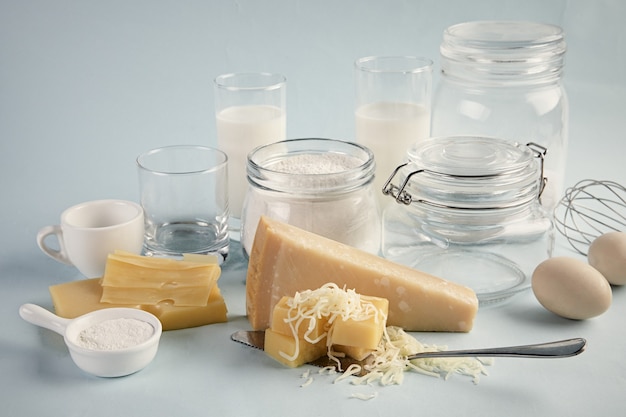
Fermented foods like sauerkraut, kimchi, and kefir are gaining popularity, but can they really benefit your health? Here’s a look at one woman’s experience and what experts have to say.
Thirteen years ago, Donna Schwenk was 41 and pregnant with her third child when she developed preeclampsia. As her liver began to fail, her baby, Holli, was delivered prematurely via C-section, weighing just four pounds. Donna herself developed diabetes, high blood pressure, and severe fatigue, making it hard for her to care for her newborn.
Desperate for a solution, Donna found a book called “The Body Ecology Diet,” which highlighted the benefits of kefir, a fermented milk drink rich in beneficial bacteria. Encouraged by a store assistant, she started adding kefir to Holli’s bottles. Within a month, Holli gained four pounds. Donna also began drinking kefir, and within 12 weeks, her health significantly improved, including her blood sugar and blood pressure levels.
Donna, who later authored “Cultured Food for Life,” believes that fermented foods high in beneficial bacteria had a transformative effect on both her and her baby’s health. These foods not only aid digestion but also boost immunity, weight management, and overall mood.
Now based in the US, Donna featured in a PBS Special called “Health Breakthroughs,” which explores the benefits of fermented foods like kefir, yogurt, and sauerkraut. Fermented foods are recognized as a major food trend, even mentioned by The New York Times.
Michael Pollan, a healthy eating advocate, has also embraced food fermentation. He credits the book “The Art of Fermentation” for inspiring his own experiments, resulting in numerous jars of homemade fermented foods in his kitchen.
Kimberly Snyder, an LA-based nutritionist to celebrities like Drew Barrymore and Hilary Duff, advises incorporating fermented vegetables into daily diets. She believes that restoring good bacteria balance can help with weight loss, skin improvement, and increased energy.
Research highlights the significance of gut health. Clinical nutritionist Kathie Swift, author of “The Swift Diet,” focuses on gut health to address various health issues like autoimmune diseases, mood problems, and weight management. Swift refers to the gut as crucial for overall health, noting that it’s home to 70% of our immune system and produces mood-regulating chemicals like serotonin.
Emerging studies, including one published in the Journal of Physiology and Anthropology, link fermented foods to better mental health. Experiments have shown positive results, such as less anxiety in mice whose gut bacteria were altered.
Our bodies host about 100 trillion gut bacteria, both good and bad. As we age, maintaining a balance becomes vital, which is affected by factors like diet, stress, and antibiotics. Nutritional therapist Daniel O’Shaughnessy explains that an imbalance can lead to various health issues, from food intolerances to skin disorders.
Despite the convenience of commercial probiotic drinks, they often contain too much sugar and transient bacteria that don’t stay in the gut. O’Shaughnessy advises consuming a variety of fermented foods for the most benefit, as each type offers different strains of good bacteria.
Fermented foods are traditional and time-honored. Jill Ciciarelli, author of “Fermented: A Four Season Approach to Paleo Probiotic Foods,” notes that before refrigeration, fermenting was essential for preserving food. Fermented foods are full of nutrients and aid digestion.
Foods like kimchi in Korea, sauerkraut in Germany, and natto in Japan are all examples of traditional fermented foods. Fermented foods are also part of healthy diets in countries with high life expectancy, like Japan.
However, moderation is key, warns Ciciarelli. Overconsumption can lead to digestive upset. Start with small amounts and increase gradually to avoid issues like gas and abdominal discomfort.
Choose products labeled with raw, live cultures, and avoid pasteurized or heat-treated ones. Making your own fermented foods is also an option and can be done easily at home with basic ingredients like salt.
In summary, incorporating a variety of fermented foods into your diet can offer profound health benefits, including improved digestion, immunity, and overall well-being. Just remember to start slow and enjoy the journey to better gut health.




